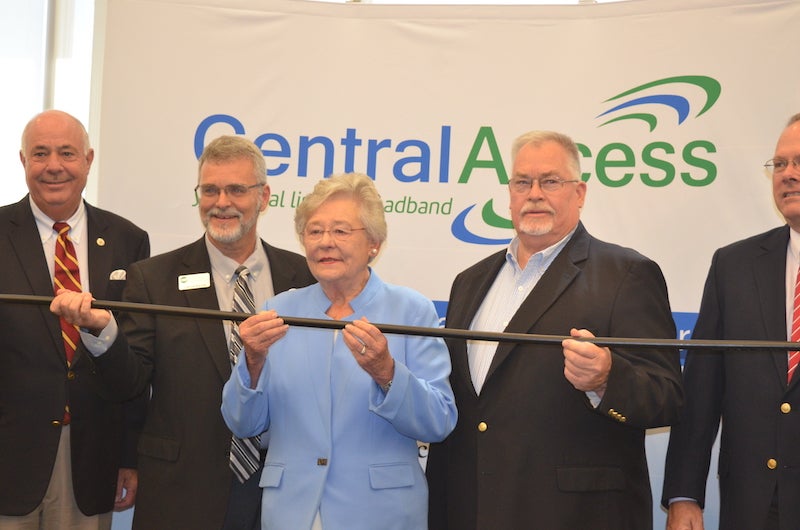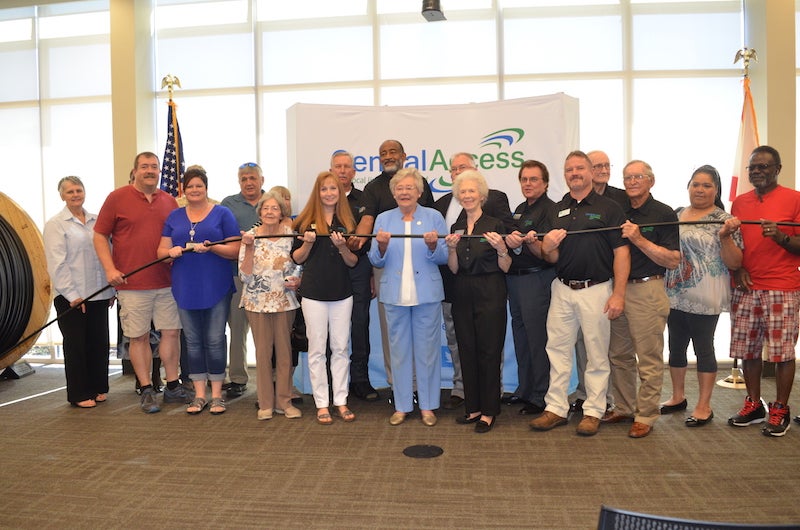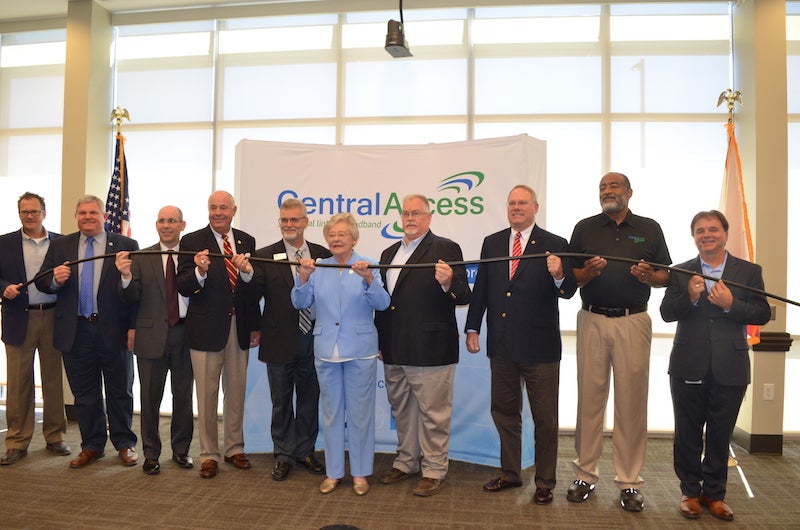CAEC celebrates Central Access broadband launch
Published 12:19 pm Friday, August 2, 2019
|
Getting your Trinity Audio player ready...
|
By JOYANNA LOVE/ Senior Staff Writer
PRATTVILLE— Central Alabama Electric Cooperative celebrated the launch of Central Access, its subsidiary that will provide broadband internet, on Aug. 2.
Gov. Kay Ivey, CAEC board members, employees, regional and state government leaders and CAEC customers gathered for the occasion.
“We are very excited,” CAEC president and CEO Tom Stackhouse said.
He said the impact of what was started at the launch will “change generations and a lot of families and what they are able to do.”
Construction of Phase 1 will start on Aug. 5. The first phase of the Central Access build out will include a portion of Chilton County. Residents can check if they are in the first phase radius at centralaccess.com.
Stackhouse compared the need for high speed internet in rural Alabama to the need 80 years ago for electricity.
“Electricity changed the economy for rural America,” Stackhouse said. “It made it an easier place to live for what you need to do in life. It made it an easier place for businesses to come and prosper … We have areas that our shrinking. We have counties that are losing numbers, not gaining. As a whole we grow, but we have noted that where we grow is around cities and towns that have access to fast, broadband internet service.”
CAEC as an electric cooperative also had a need for “fast communication, so we can provide reliable service,” Stackhouse said.
A desire to connect each of the cooperative’s offices and substations through internet via fiber optic cable sparked the idea to offer these services to residents. He said a company willing to expand into rural areas could not be found.
“We truly believe that this small (fiber optic) cable has the power to revolutionize the areas we are in, so we are very excited to get this started,” Stackhouse said.
Stackhouse thanked Gov. Ivey for signing the legislation (House Bill 400 and Senate Bill 90) and supporting grants that made this project possible.
“What an exciting day this is for Central Access and for rural counties and the entire state of Alabama,” Ivey said. “Broadband is just essential for our student’s education, for our economy, for recruiting business and industry, for improving our health care, for the overall general quality of life for our people.”
She said there are approximately 840,000 people in rural Alabama who do not have access to broadband internet.
“We have many reasons to celebrate today, and thank you for letting me be a part of this momentous occasion as we kick off the installation of broadband internet in this area,” Ivey said.
“As great as today is, and it is a really great day, it is not the end,” Sen. Clyde Chambliss said. “When those 840,000 are served, then we know we are close to solving this issue. (This) is a big, big step.”
He said he looked forward to working with all of the partners in the endeavor.
“Currently, we are under served, and we have a chance to make a difference in this area,” Chris Montgomery, executive vice president of Central Access, said.
Montgomery said many are excited about the project and want to know how fast Central Access will be able to build infrastructure to reach them.
“This will not be done quickly,” Stackhouse said. “There is not a magic wand … Our goal is to get that very end person that is on our lines. Our goal is not to rest until we get there … Every day we are going to be closer than we were.”
Sean Strickler, vice president for public affairs for the Alabama Rural Electric Association, said this association represents those electric co-ops serving some of Alabama’s most rural areas.
“Our biggest export right now in rural Alabama is our children,” Strickler said.
He said lack of internet access is leading to children in these areas leaving when they grow up for larger cities and other states that do have these offerings.
Strickler thanked all of those who worked on getting House Bill 400 and Senate Bill 90 passed in order to allow cooperatives to provide “this vital resource to rural communities.”
He emphasized that offering broadband was “not about the money, it’s about the people.”








